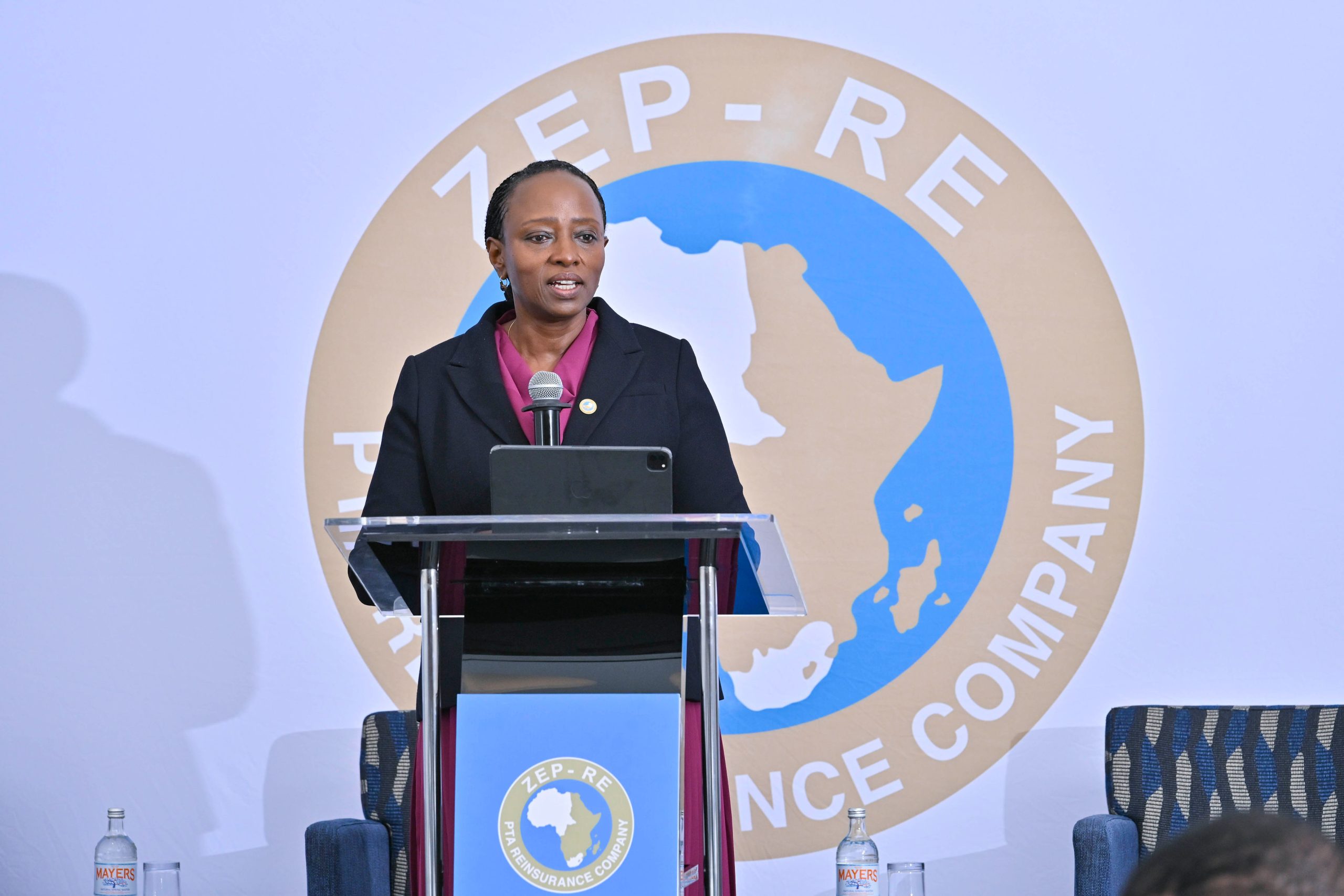The AI Revolution Comes to African Life Insurance
How Kenya’s insurers are racing to embrace artificial intelligence in a market ripe for disruption

In a sleek conference room in Nairobi, Kenya’s insurance elite gathered with a shared recognition on their industry about to be transformed forever. Artificial intelligence, a technology that promises to revolutionize everything from how policies are written to how claims are processed across Africa’s fastest-growing insurance markets.
The setting was ZEP-RE’s recent CEO Roundtable, where senior executives from Kenya’s life insurance sector came together to confront a sobering reality. Despite Kenya emerging as Africa’s third-largest insurance market with a life sector worth $1.3 billion, penetration rates remain stubbornly low at just 2.5%. The untapped potential is enormous but so is the competitive pressure to innovate.
“Life insurance is not a luxury, it’s a necessity for societal resilience,” emphasized Hope Murera, Managing Director and CEO of ZEP-RE. “As leaders, we must ensure that our solutions are not only accessible, but relevant, inclusive and trusted.”
ZEP-RE itself embodies this continental ambition. Now the second-largest reinsurer in Africa with a turnover of 348 million USD, the company has positioned itself at the forefront of innovation, with Kenya contributing 40% of its overall revenue and accounting for 50% of the company’s life business.
For an industry traditionally associated with lengthy paperwork and weeks-long approval processes, the changes already underway are striking. Leading African insurers are not just talking about AI they are deploying it with measurable results.
At Britam Kenya, customers now chat with “Bella,” a WhatsApp-based AI system that handles product sales and customer queries around the clock. Meanwhile, Turaco, a nimble Kenyan startup, has slashed operational costs with an AI-enabled WhatsApp claims bot that processes simple claims without human intervention.

South of the border, Discovery Life and Sanlam are using AI to accelerate product development, while Old Mutual has introduced AI personalization for financial wellness journeys, achieving higher conversion rates in mass market products.
“AI is all-encompassing,” explained John Kamara, a globally recognized AI transformation expert and founder of AICE Africa. “Unlike previous innovations that served particular domains, AI has the capability to be everywhere: automated underwriting, faster claims processing, enhanced customer service.”
The Human Factor: Jobs or Opportunities?
Perhaps the most revealing moments at the roundtable came when executives addressed the elephant in the room: what happens to human workers when machines can process claims and underwrite policies?
Jackson Theuri from Britam General Insurance offered a surprising perspective. Rather than job losses, his company’s AI implementation created more interesting roles for existing staff. “The people need to have the right skills and attitude. The culture is that ability to do things that are uncomfortable,” he noted.
The key, according to Theuri, was ensuring psychological safety for employees throughout the transformation. “When you solve technology problems, you don’t solve them for life or general insurance, you solve them for customers.”
This sentiment was echoed by Wesly Too from Old Mutual Life Kenya, whose company established an AI council and comprehensive training programs before rolling out new systems. “Most of our staff were already using AI in some form. It is essentially about making whatever they are doing even more efficient.”
Regulatory Reality Check
Commissioner Kiptoo from Kenya’s Insurance Regulatory Authority provided both encouragement and gentle warnings to the assembled executives.
While praising improved industry performance, particularly in life insurance profitability, he cautioned against making unsustainable promises to customers and emphasized the need for transparency. Perhaps more pointedly, he challenged local insurers’ tendency to cede business to offshore reinsurers rather than building regional capacity.
“Where is your patriotism?” Kiptoo asked. “You want to keep your business here so that you can benefit from it.”
The executives identified transformative possibilities on the horizon. Wesly Too painted a vivid picture of the future: “I’m looking at a time where I’m able to underwrite a customer in just four minutes, using their wellness data and various other variables.”
Such hyper-personalization could revolutionize customer experience, enabling insurers to process unstructured data for deeper understanding of individual needs. Automated underwriting could shrink application processing from weeks to minutes, while sophisticated predictive modeling could help companies stay ahead of market trends and customer behavior.
But challenges loom large. Data privacy regulations require careful navigation, while the “black box” nature of some AI models creates transparency concerns for regulators. Perhaps most critically, the traditionally competitive insurance industry must grapple with whether to share data for mutual benefit.
“This is an industry that is not very collaborative,” observed Hope Murera. “How do we look at this differently so that when it’s a win, we all win?”
The answer may lie in shared data ecosystems and federated learning models that allow companies to benefit from collective intelligence without sacrificing competitive advantages. As John Kamara noted, “You are going to have to share data in a trust ecosystem.”
For African insurance markets, the stakes could not be higher. With Kenya’s young, digitally connected population and increasingly supportive regulatory environment, the continent appears poised to leapfrog traditional development patterns in financial services.
Having implemented AI in medical claims adjudication with significant success, Asman Mugambi, Jubilee Life Insurance CEO emphasized the importance of selecting use cases that demonstrate clear Return on Investment (ROI) to stakeholders. “You start step by step, pick a case that will give benefits so that stakeholders can allow you to progress.”
The ZEP-RE roundtable made one thing clear: AI in African life insurance has moved beyond theoretical discussions into practical implementation. Companies are building governance frameworks, training workforces, and deploying real solutions that are already changing how business gets done.
The question facing industry leaders is no longer whether AI will transform African insurance, but whether they can adapt quickly enough to lead rather than follow this transformation. In a market with such enormous untapped potential, the companies that get it right stand to gain the most while those that don’t risk being left behind in an increasingly digital future.
For now, executives like Murera are betting that collaboration and innovation can unlock opportunities across the continent. “We must ensure our solutions are accessible, relevant, inclusive and trusted,” she emphasized, a vision that if realized, could finally bring financial protection to millions of Africans who need it most.

ZEP-RE is committed to partnering with the industry on this transformative journey, leveraging AI and technology as strategic enablers. We are well-positioned to champion ongoing dialogues between regulators and industry stakeholders through established forums like the Association of Kenya Insurers (AKI). Ultimately, a thriving direct insurance market means a stronger reinsurance market, making this a shared path to success.